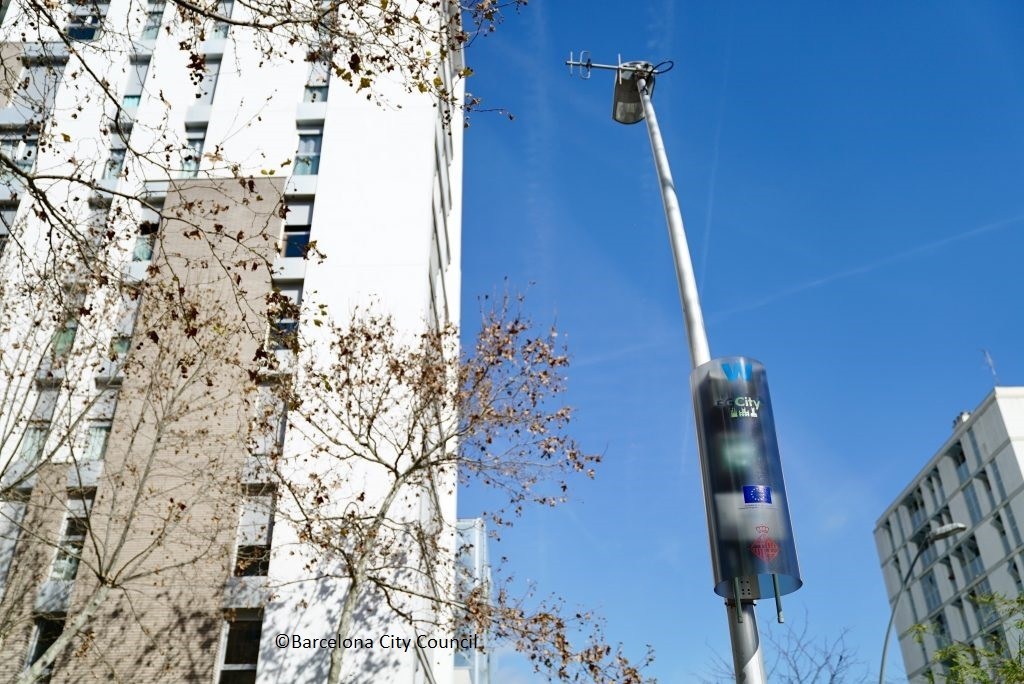Brussels isn’t the only European city to invest in smarter street lighting, but while the Belgian capital is hoping to use high-tech lampposts to cut costs and reduce light pollution in residential areas, some groups are calling for them to be deployed in the fight against the spread of the coronavirus.
A new report commissioned by the “Humble Lamppost” initiative of Smart Cities Marketplace looked at the way various progressive European cities have already been using smart lampposts to take on the global pandemic.
One aspect they explored was how lampposts in Barcelona were used to monitor crowds at beaches. Doing so allowed for authorities to direct beachgoers to less-congested areas where they’d be able to relax while adhering to social distancing measures.
“This initiative was quite challenging to implement,” said Marc Perez-Batlle, innovation manager at Municipal Institute of Information and Technology at Barcelona City Council.
“It’s a really awkward space. On one side you have the sea, and on the other side you have streets that are beside the sand. There is not a lot of space to put electronics.”
Scanning devices attached to the lampposts used artificial intelligence to analyse the proportion of sand, rather than technology that would identify people’s faces. Images were anonymised to further protect the privacy of people in public spaces.
Related News
Over a year into living under coronavirus-related restrictions, the pandemic seems set to remain a fixture of European life, as most countries deal with a third wave, or stilted vaccination campaigns.
“Technology has brought us together during the pandemic, and it can also help to lead us out of it,” said Eddy Hartog, Head of Unit Smart Mobility and Living in DG Connect at the European Commission.
“Europe and indeed the rest of the world are increasingly becoming more urbanised, so smart city solutions like smart lampposts are a vital piece of the jigsaw for making citizens feel more secure in their daily lives and to improve livelihoods.”
Much like Barcelona, Westminster City Council in London has been exploring ways to use smart lighting to keep areas of Oxford Street clear in order to help with crowd safety management.
The Council is currently testing the use of smart lighting controls to dim lights around the street in order to create a welcoming atmosphere that encourages people back into town.
While smart lampposts can help reduce lighting costs, the Humble Lamppost report says switching to LED lights alone doesn’t unlock the full society benefit of a lamppost.
“The paper highlights the progressive cities that are leading the way in using smart technologies to tackle Covid,” said Graham Colclough, founding partner of UrbanDNA. “However, they have not yet fully exploited its potential to address Covid recovery.”
UrbanDNA is a specialist partnership that works with progressive European cities and their industry partners to deliver better solutions faster to common urban challenges.
“The real opportunity lies with the [sic] group that can reap huge energy and cost savings from installing LED smart lights, and benefit at the same time by understating how to address Covid-related needs,” said Colclough.
Apart from the coronavirus-related uses, Barcelona, London, Munich and Copenhagen are all exploring the use of smart lampposts to deliver applications that can monitor environmental conditions, track pedestrian and cycling mix, respond to floods, charge electric vehicles and provide public Wifi, among other things.
Helen Lyons
The Brussels Times

